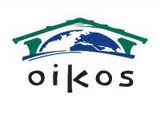Every Christian is called to be a theologian, but be careful:
· Any theology can become enmeshed– tied to nationalism, racism, sexism, commercialism, etc.
· When a theology rejects diversity and ignores the ways culture influences ideas about God, postmodernists* will regard that theology as empty and even dangerous.
· When theologies defend social, political, or economic systems that oppress the poor (or racial minorities, ethnic groups, women, gays, etc.), liberation theologians* will view a theology’s ‘universal truths’ as partial and biased.
We can’t make statements about God and the world unless we understand:
· All theological statements are hypothetical, partial, and limited. We must remember that the only absolute, the only certainty, the only universal, is God. Even our deeply held insights about God are relative. In the end, all we can say is this: from our own experience, and from within our own tradition, we have come to a carefully-reasoned interpretation of God’s relation to the world.
· All theological statements are metaphorical. The Christian tradition uses the most ordinary realities of life (bread, water, light, father, mother, etc.) as metaphors for God’s relation to the world. But as we use these metaphors, we need to remember they are partial and inexact.
· Since our deepest attitudes are influenced by our basic metaphors, we need to analyze metaphors in depth – and then decide whether they are still worthy of our loyalty.
· All theologies arise from a particular context, and today the planet itself is our context. As we look at our planet, we now see that all groups of human beings, and all parts of nature, are interrelated and dependent on each other. In this planetary context, we humans are not persons who may be ‘saved’ for life in another world, but persons who are interdependent with everyone – and everything.
· All liberation theologies arise from the cries of the oppressed, but we are not oppressed. Rather, as the people at the top of the world’s pyramid, we are the oppressors. So our liberation involves two struggles: first, to liberate ourselves from our old worldview; second, to liberate others from our domination over them.
A metaphor (from ecological theology*) for God’s world:
· We would begin to envision the whole earth, with all its beings, as God’s household (oikos). *
· For the oikos to thrive, we would need to learn – and then follow – God’s ‘house rules.’*
· We would have to let go of our focus on our personal salvation, to focus on the oikos’ salvation.
· We would have to develop a philosophy of ‘enoughness,’ making sacrifices so others might live.
· We would have to work hard (because we would need to work together) to make systemic changes.
· But with right management of the oikos, all beings would be included at the dinner table.
* See ‘definitions’


I was amused to open my August issue of Scientific American and find an article titled “What is Real?” , a discussion of both quantum physics and structural realism, or what the author (a philosopher with a physics degree) calls “ontic structural realism.” If I understand what he’s saying, relationships are all there is. One of the “in Brief” commentaries is this: “Some researchers think that the world, at root, does not consist of material things but of relations or of properties, such as mass, charge and spin.”
I think this fits in well with some parts of Salllie McFague’s theology.
During our discussion at St Ben’s on July 25, John and I criticized the postmodernist inclination to regard everything as a social construct, even the best documented science, as rather silly. Since we are both physical chemists, we were thinking mostly of concepts from physics and chemistry, such as gravity and electrons. Rita responded that medical practice is often socially conditioned. I want to take this opportunity to agree with her that as one moves from the physical sciences into the biological sciences, social constructs play a larger and larger role.
For a somewhat readable summary of the intellectual battle between postmodernists and scientific realists in the 1990s, have a look at this article from Wikipedia: http://en.wikipedia.org/wiki/Science_wars .